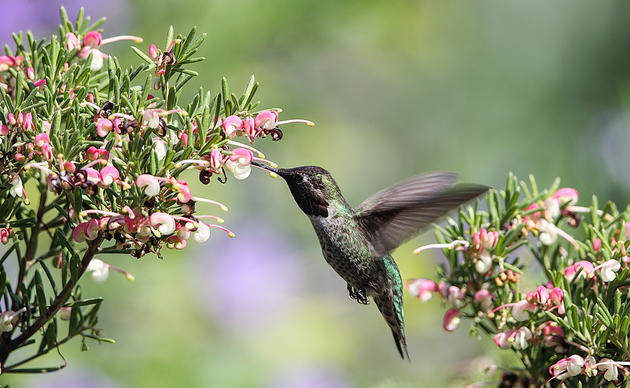For those of you that have been following the controversy over the Acorn Woodpeckers in the Northern California community of Rossmoor -- and even those that haven't -- the issue took a few odd turns over the weekend. As a federal permit allowing homeowner groups in the Northern California community of Rossmoor to shoot Acorn Woodpeckers expired this past weekend, conservation advocates who had opposed the killing might have had cause to celebrate. However, the expiration of the permit came just as news that a separate federal agency has trapped 20 woodpeckers from the Rossmoor area for scientific purposes.
“The killing of Acorn Woodpeckers in Rossmoor is something that should never have been approved in the first place, and this news about trapping is shocking,” said Graham Chisholm, executive director of Audubon California. “Over the last several months, scientific experts have concluded that killing these birds will not achieve the intended purpose, and it is clear that the public doesn’t approve of this flagrant abuse of native wildlife.”
Homeowner groups in Rossmoor initially obtained the depredation permit to shoot up to 50 Acorn Woodpeckers that had been causing damage as they built their granaries in the sides of buildings. At least 22 woodpeckers had been shot by the U.S. Department of Agriculture’s Wildlife Services before representatives from Audubon California and Mt. Diablo Audubon began working with the homeowner groups to find other alternatives – and made several substantial offers of assistance that would have avoided the need for lethal remedies.
In January, the homeowners declined the assistance and vowed to move ahead with plans to shoot birds. This prompted Audubon California to begin a broad campaign both at the legislative and administrative levels, as well as in the media. At the prompting of Audubon California, thousands of activists sent letters to the Service or signed the online petition.
This outcry led to a voluntary cessation of shooting so that the U.S. Fish and Wildlife Service could evaluate the situation, and on May 31 the permit quietly lapsed. However, U.S. Department of Agriculture’s Wildlife Services, the agency that had been charged with carrying out the original killings, received permission from the U.S. Fish & Wildlife Service for the live collection of 20 woodpeckers from the Rossmoor area for their research purposes. Details of the study have not been released and Audubon California was not made aware of this new twist in the issue until late last week. It is likely that once their study is completed the captive birds will be killed.
“The handling of this issue raises substantial questions about the judgment of the public agencies involved,” said Chisholm. “We want assurance that the U.S. Fish & Wildlife Service will reject any application to renew the depredation permit at Rossmoor, and that the bird conservation community will be consulted before any further actions are taken against the Acorn Woodpecker population in that area.”
Acorn Woodpeckers are a fairly common and beloved bird in California. The highly social bird is known to store food in large communal granaries drilled in oaks or other woodland trees. As housing developments, such as the ones in Rossmoor, have encroached into these woodlands, the creative birds have been known to drill their holes in buildings.
“The Acorn Woodpecker is a particularly beloved part of the California landscape,” said Chisholm. “Killing them for doing what they do would set a horrible precedent at a time when we should be finding ways to protect and support this kind of native wildlife.”
“If this situation has had any benefit,” Chisholm added,” it has been the renewed awareness and respect for California’s native wildlife, which are treasures we shouldn’t take for granted.”
By Garrison Frost
Monthly Giving
Our monthly giving program offers the peace of mind that you’re doing your part every day.




